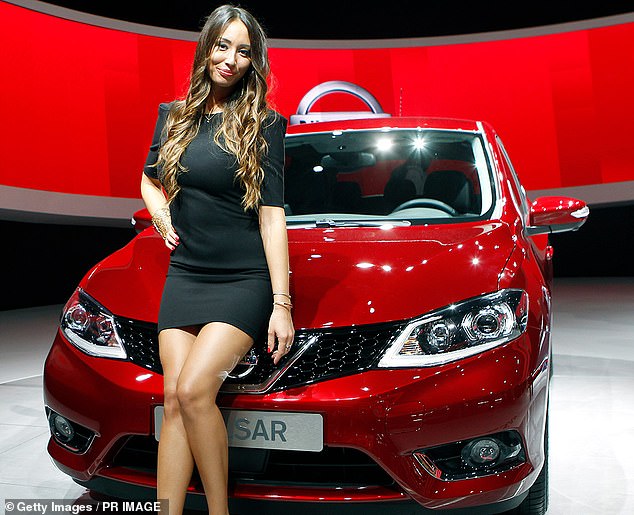Car manufacturing giant Nissan could face collapse within the next 12 months as Chinese carmakers increasingly dominate global markets, including Australia.
The Japanese auto firm, which employs 195 people in Australia, 7,000 in the UK, and 17,000 in the US, has embarked on a huge cost-cutting programme after suffering heavy losses.
Chief executive Makoto Uchida is taking a 50 per cent pay cut, and it has now been reported that chief financial officer Stephen Ma is stepping down.
However, insiders fear that the moves may not be enough as Nissan struggles to stay competitive with its Chinese rivals.
‘The root of the problems stem from a wave of cheaper EV alternatives coming from China that are flooding the global market and stealing market share away from the Japanese company,’ Forbes reported.
The company risks running up its largest-ever debt by 2026, potentially owing as much as $5.6billion, it is suggested.
Mr Uchida said: ‘This has been a lesson learned and we have not been able to keep up with the times.
‘We weren’t able to foresee that hybrid electric vehicles and plug-in hybrids would be so popular.’
The Financial Times quoted a ‘senior official’ at Nissan as saying: ‘We have 12 or 14 months to survive. This is going to be tough. And in the end, we need Japan and the US to be generating cash.’

In Australia, Nissan was the 10th most popular car brand in November, but it’s feeling the heat from Chinese competitors, including BYD, Chery, MG and Polestar, with dozens more set to launch.
Nissan Oceania boss Andrew Humberstone previously said there are likely to be 100 car brands in Australia within five years and that it was almost double what the US and UK had.
‘It’s not sustainable to have, within five years, 100 brands in the market,’ he told Car Expert.
‘We’re at 69 or 70 already and 12 more coming in. They’re saying 100 brands in the country within the next five years, that’s a very, very complex marketplace.
‘The business case does not fly, simple. It doesn’t work.’
Mr Humberstone said Australians who buy new cars, particularly of non-established brands, could be at risk of being left in the lurch should the venture collapse.


He said car parts might become no longer available for specific models and residual sales value could plummet if the brand no longer had a presence in the country.
Mr Humberstone said Nissan had no intention to leave the country but was concerned about new car makers competing for sales.
‘We’re a very strong brand. But actually, if you look at where we are, in terms of our market share, it raises a number of questions because arguably, we should be in a better position.’
US Cybersecurity and Infrastructure Security Agency executive director Brandon Wales has also warned Australia to be wary about Chinese espionage from the growing use of vehicles from the country.
‘It should receive – and deserves – a higher degree of scrutiny,’ he told The Australian Financial Review.
Nationals senator Matt Canavan said China couldn’t be trusted with electric vehicles if Chinese companies like Huawei were banned from installing the 5G mobile network.
‘Given that we have banned China from building our 5G network, it seems strange to me that there’s not greater scrutiny on allowing China to control the vehicles that we drive.
‘There’s at least great risks in a 5G network as there would be in a vehicle that travels a hundred kilometres an hour.’

CHINESE CAR BRANDS SET TO CHARGE INTO AUSTRALIA AND COMPETE WITH NISSAN
Zeekr: This Chinese brand, with a name that stands for ‘zero, evolving, electric and krypton’, has pledged to bring three electric cars to Australia by the end of 2025. The Zeekr X compact SUV will cost less than $60,000 and is expected in October.
Geely: The Chinese car giant might attract plenty of attention when it launches its Radar electric ute in Australia late this year. Called the Riddara R6 in other markets, the electric Toyota HiLux rival could feature a range of up to 571km.
XPeng: Three electric cars from this car maker are expected in Australia in the next three years, with the first model, the G6 SUV, due in October. Pricing for the vehicle, which promises to reach 100km/h speeds in 6.2 seconds, will be released in September.
Aion: The electric arm of automaker GAC, or the Guangzhou Automobile Group, has committed to launching a battery-powered hatchback, similar in size to a Toyota Corolla, in 2025.
Jaecoo: A luxury spin-off of the brand Chery, Jaecoo is expected to bring a mid-sized SUV called the J7 to Australia this year. The vehicle has styling similar to a Range Rover and will be available in two-wheel and four-wheel drive configurations.
Leapmotor: Expect to see two cars from this Chinese brand in Australia late in 2024. Its C10 mid-sized SUV and T03 small car, also known as a mini-car, will announce its arrival.
Skywell: A competitively priced SUV is expected from this brand in 2024. Known as the Skywell ET5 overseas, it will be sold as the EVA 5 locally and promises a range of up to 489km and a price of less than $50,000.
